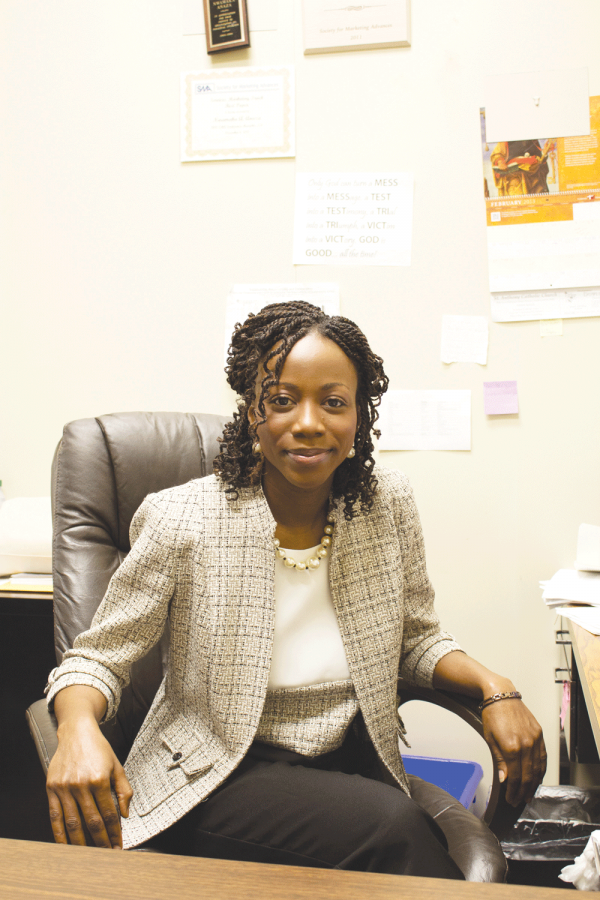“I have always had a passion for business; I could not avoid it… The more I knew about marketing, the more I took interest. The first time I took a marketing class, I was hooked. There was no turning back.” Dr. Nwamaka Anaza, Assistant Professor of Marketing said when describing her decision to become a marketing professor.
Anaza was born and raised in Nigeria, but decided to follow in her father’s footsteps and attend Southern Illinois University (SIU) in the United States.
Anaza initially wanted to go into law and earned her undergraduate degree at SIU in pre-law with a specialization in paralegal studies. She also received her M.B.A. degree from SIU.
She then earned her Ph.D in consumer behavior at Purdue University. She taught at Purdue University before joining the Francis Marion University (FMU) faculty, where she currently teaches the principles of marketing, international marketing and personal selling.
Anaza spoke passionately about her love of marketing. She states that the process of marketing is to first conduct statistical analysis, generate ideas and then create a product and service marketing campaign: ensuring the delivery is at the right time, place, and in the way the customer wants it.
“Marketers breath life into a product. Marketers are the heart and soul of every business out there. We bring the product to life and give it spark,” she said.
Anaza explained that one can never sell a product if the customer does not want it and this is what makes researching exactly what a customer wants a difficult process. However, once the marketer determines what the customer wants, they work to please the customer and then give them exactly what they are looking for. Marketing is not an easy profession, she said, but it is an exciting profession because people want different things.
In addition to being a professor at FMU, Anaza is also a dedicated market researcher. Anaza said she spends a lot of her free time thinking about it, reading about it and analyzing it.
“As a scholar, I am dedicated to my research in hopes that it benefits both businesses and consumers,” she said.
Anaza’s current research is based on the idea of businesses looking at their employees as internal customers; instead of employees being service providers, they are life-time consumers of the customer’s products. Anaza said that her research is showing that when employees consume the product or use the services, they sell better because they speak from personal experience.
“In a sense, I am looking at employees from a patronage perspective and saying to companies, ‘You have a whole new set of customers in your office that you do not have to oversell to because they are already selling to others,’” she said.
According to Anaza, “preferential treatment of employees”, or making them feel that they matter to the company beyond the 8 to 5 workday, is absolutely vital. If employees know that they matter, then they will give something in return and raise employee satisfaction.
Anaza has had two publications about this study and believes that her research will have potential to make an impact on people’s lives and company’s bottom lines. Her plans for the future are to take this research to a whole new level and compare how customers as internal employees are perceived in the international arena.
“If I had to give advice to any student about how to be successful in life, stay hard-working because you never know who is watching,” she said. “Balance your life, balance your time, never stop learning and stay self-motivated.”
